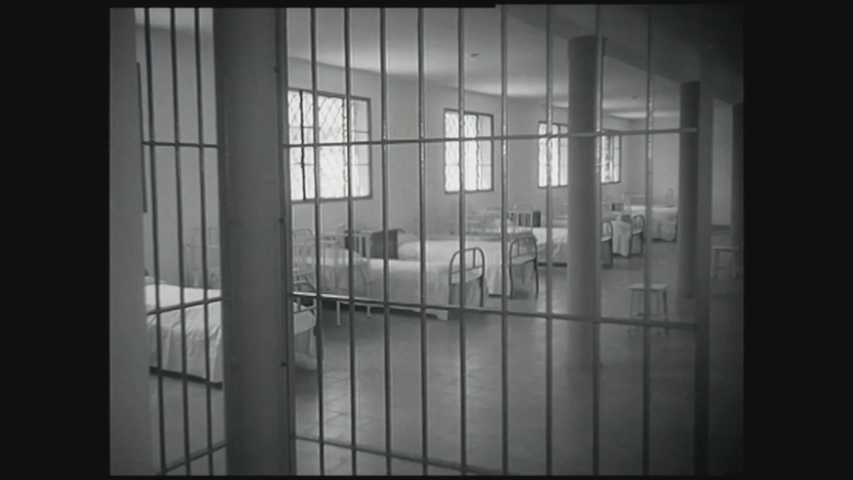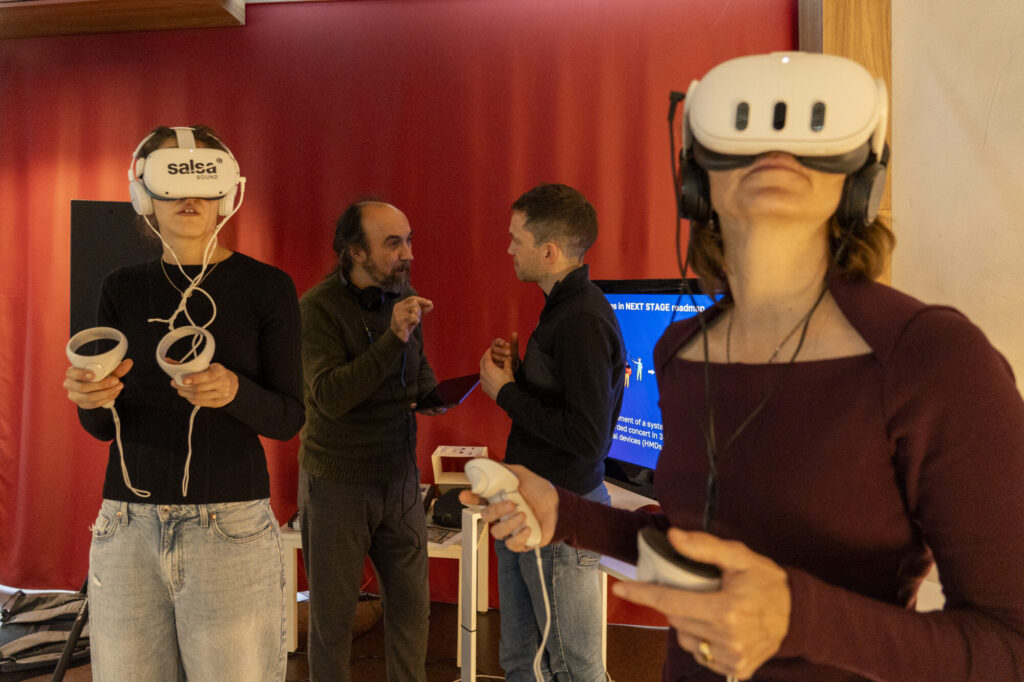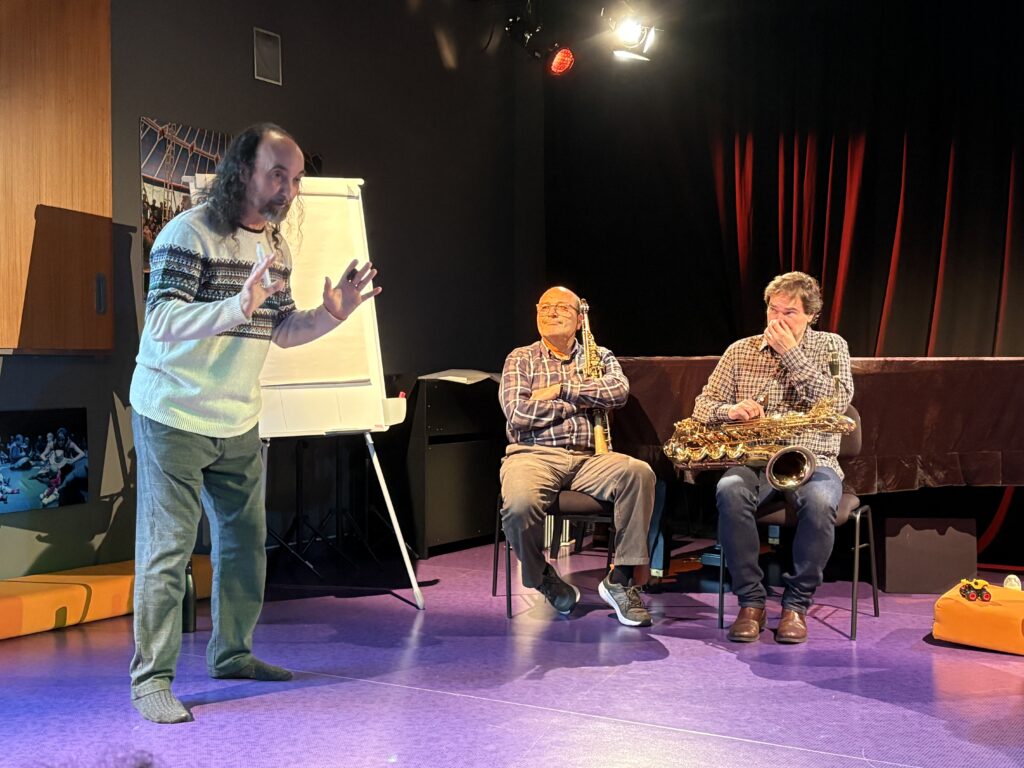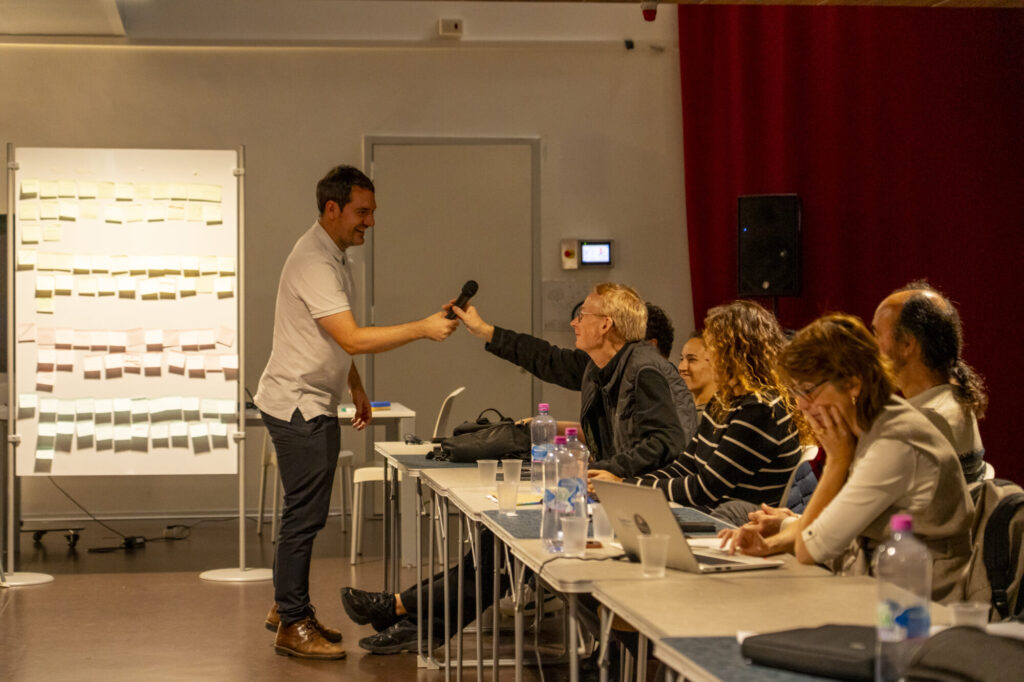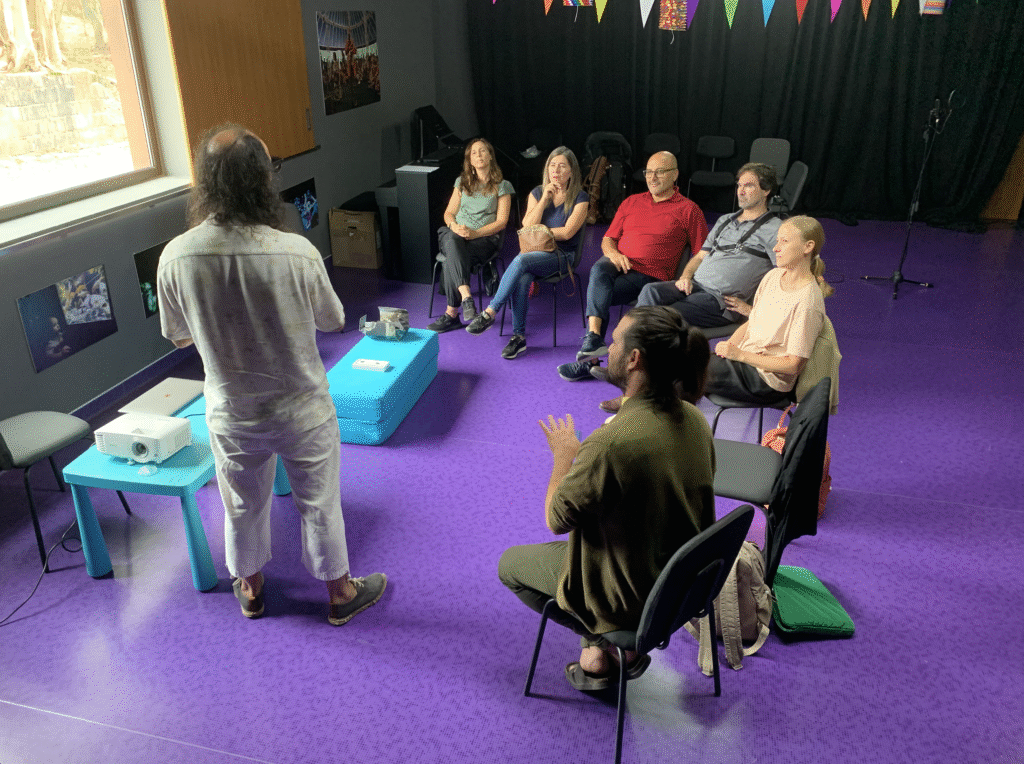Creative Alchemy: How Life Becomes Art
By François Matarasso |April 2025
On the day he visited the former Trinitat Vella prison, our AMPLIFY partner François Matarasso witnessed something extraordinary. What began as a meeting about a community opera evolved into a powerful moment of collective remembrance.
Read his article below:
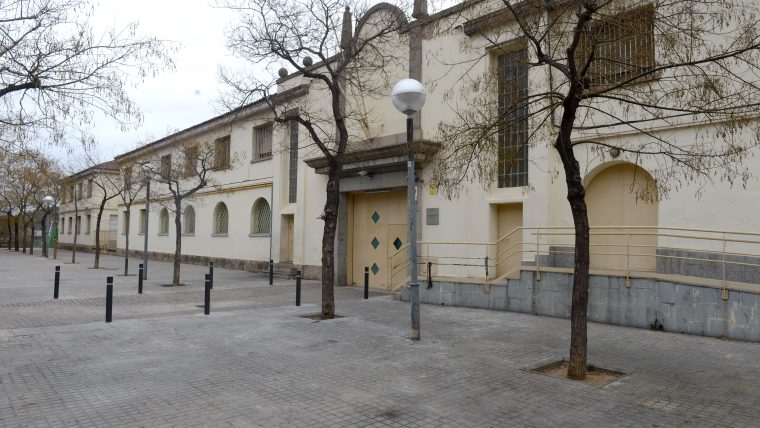
It’s a cold, functional room, part of the prison’s public face, used variously as chapel, recreation room and, today, a meeting room. About thirty of us have gathered here this morning: people from the Sant Andreu district, the Liceu opera house and Amplify. Ostensibly, we’re here to talk about the community opera being co-created with local people but that meeting could have happened anywhere. In truth we’ve come to bear witness to the experience of the women who were imprisoned here during the 1960s and 1970s merely for joining a demonstration, or a strike; for having an abortion or leaving a husband.
Over the next forty minutes or so, nine former inmates stand up to speak about their time here, in the Trinitat Vella prison. Turn by turn and with great dignity, they speak of early morning raids, arrest, and imprisonment. They describe the religious and conservative regime in the prison, where most reading and writing were denied but sewing was enforced. Of the nuns who served as gaolers. Of the punishment cells. Some have brought objects from that time: a jumper, a drawing, a letter of release. Fifty years have passed, sometimes more, but the experience remains as urgent as ever and the need to speak of it is compelling.
‘I was arrested when I was 18 years old in a demonstration in 1970, in December. […] At that time, Francoism caused the loss of all freedoms and the people who were most harmed were women. Under Francoism, women had to be wives, mothers and transmitters of the principles of the regime to our children. We could not have our own thoughts and the dissident women, which we were, were dissidents because we had our own thoughts. And that was why we were arrested because we did not comply with or assume the domestic role imposed by Francoism.’
Their stories are shocking and raw, even after so many years. The Trinitat Vella prison is due to be demolished next year and some of the former inmates are campaigning to have at least part of the site preserved as a memorial to those who suffered there during the dictatorship. The outcome of that debate is uncertain, but the Liceu Opera House decision to co-create an opera around the women’s stories is definite. The writer, Blanca Bardagil, has drawn on her conversations with the former inmates in creating her libretto: The Rose with Seven Petals.
This is a delicate process, involving trust on all sides. People’s experiences must be respected and treated with care, especially when they are as traumatic as these, but art is not life and so there is a kind of creative alchemy involved. Everyday life can be too big, too extraordinary, too harsh to be credible on a stage so the artists must distil lived realities into something an audience can understand and respond to.
At the same time, Amplify is beginning to work with the former inmates and other community members to record their experience, not only in the prison but in other aspects of life in the Sant Andreu district. The opera will have its premiere in June 2027 but before then we will use digital technology to co-create a body of oral history that can be shared with the people of Barcelona, bring the past of a little known neighbourhood into vivid life. This resource will also be available to inspire the design and scenography of the opera production. How it might be used is still uncertain—but that is the wonder of a co-creation process.
